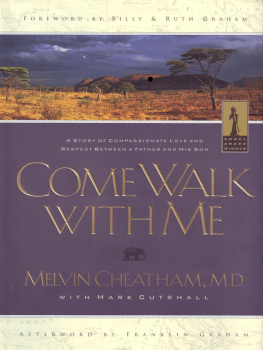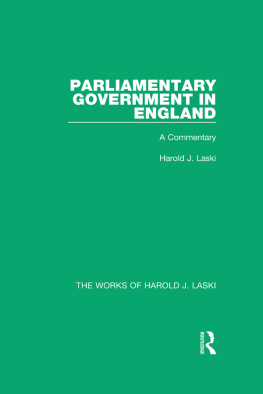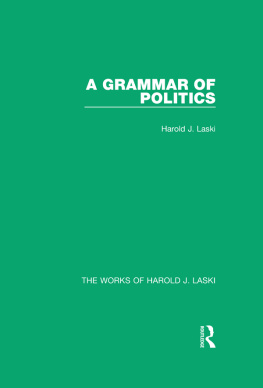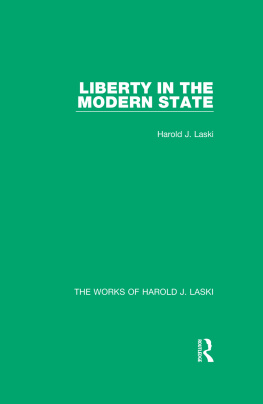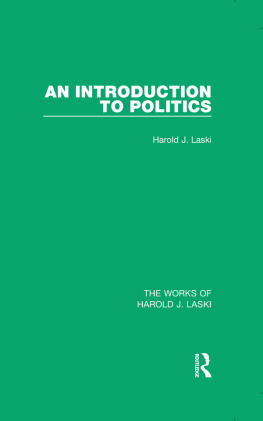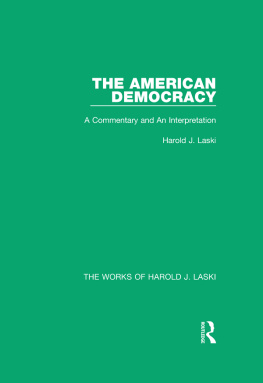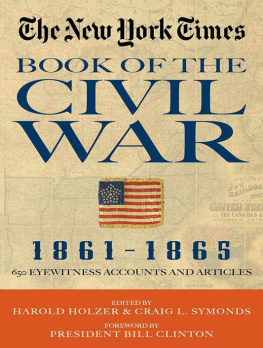BLACK FAMILIES
BLACK FAMILIES
Interdisciplinary Perspectives
Edited by
Harold E. Cheatham and James B. Stewart
Parts of this book were originally published as a special issue of The Review of Black Political Economy, copyright 1989 by the National Economic Association and the Southern Center for Studies in Public Policy of Clark College, Atlanta, Georgia.
Published 1990 by Transaction Publishers
Published 2017 by Routledge
2 Park Square, Milton Park, Abingdon, Oxon OX14 4RN
711 Third Avenue, New York, NY 10017, USA
Routledge is an imprint of the Taylor & Francis Group, an informa business
Copyright 1990 by Taylor & Francis.
All rights reserved. No part of this book may be reprinted or reproduced or utilised in any form or by any electronic, mechanical, or other means, now known or hereafter invented, including photocopying and recording, or in any information storage or retrieval system, without permission in writing from the publishers.
Notice:
Product or corporate names may be trademarks or registered trademarks, and are used only for identification and explanation without intent to infringe.
Library of Congress Catalog Number: 89-35248
Library of Congress Cataloging-in-Publication Data
Black families : interdisciplinary perspectives / edited by Harold E. Cheatham and James B. Stewart.
p. cm.
ISBN 0-88738-812-4
1. Afro-AmericansFamilies. I. Cheatham, Harold E. II. Stewart, James B. (James Benjamin), 1947-.
E185.86.B5255 1989
306.85008996073dc20
89-35248
CIP
ISBN 13: 978-0-88738-812-5 (pbk)
To our families of origin and our parents: the late Elinor A. and Thomas G. Cheatham, Sr., and Clora A. and the late Reuben M. Stewart, who taught us how to love.
To our own families: Arlene, Mark, and Brian Cheatham, and Sharon, Kristin, Lorin, and Jaliya Stewart, who convoke what we were taught.
CONTENTS
Margaret C. Simms
Harold E. Cheatham and James B. Stewart
James B. Stewart
Thomas G. Poole
Mitchell F. Rice
Wilhelmina A. Leigh
Robert B. Hill
Margaret Beale Spencer
Diana T. Slaughter and Peggye Dilworth-Anderson
Noel A. Cazenave and Rita Smith
Michael W. Williams
Barbee C. Myers
Leanor Boulin Johnson
Lois Benjamin and James B. Stewart
Roy L. Austin
Amon O. Okpala
Robert E. Millette
Jewelle Taylor Gibbs
Barbara Bryant Solomon
Harold E. Cheatham
Harold E. Cheatham and James B. Stewart
Upon completion of this book we express our thanks first to our colleague Dr. Linda M. Burton, who together with the second author, James B. Stewart, conceived and organized the 1985 conference that was the genesis of the papers eventually collected for this volume. Dr. Burton also contributed very significantly to the early stages of the manuscript selection and development. Although Dr. Burtons own research and scholarly commitments led to her decision to withdraw from the project, we consider her contributions central to this final product.
Special thanks to Kay Burd, Administrative Aide, Black Studies Program, whose loyalty, diligence, and efficiency were invaluable in bringing the 1985 conference and this volume to fruition. Eileen Williams and Claire Markham, as well as support staff in the Individual and Family Studies Program, have provided us critical clerical assistance.
Gratitude is due to units of Pennsylvania State University that have provided financial and other support for the 1985 conference and an institutional climate of support that enabled this research and scholarship.
Our sincere thanks to our contributors who stayed the course, maintaining the commitment, diligence, resilience, and resourcefulness exemplary of black families.
In 1960, black families lived in strictly segregated communities, unprotected by the extensive set of civil rights laws and Great Society programs that were established and implemented during the following decade. Yet, 75 percent of black children lived in families headed by married couples, often in households with additional adults grandparents, aunts, uncles, etcetera. Black institutions such as the church were a major focus of community life, reinforcing family values and providing support when the family could not. Schools, hospitals, and other community institutions were segregated and had fewer resources than those in the white community, yet they provided employment for black professionals and other workers. Since most blacks were restricted in their choice of housing, workers throughout the income distribution lived and worked in close proximity, allowing children to observe a variety of lifestyles and occupational options.
The general expectation was that the political, economic, and social changes that would result from the legislative initiatives of the 1960s and 1970s would expand opportunities for blacks and increase the well-being of members of the black community, especially the children. However, the evidence shows quite clearly that the expected improvements have not taken place across the board. The majority of black children now live in single-parent families, usually with their mother. Two-thirds of them do not have other adults in the household, which decreases their access to the supportive structure that helped past generations to survive hard times. As a forthcoming study by the Joint Center for Political Studies shows, these changes have had an adverse effect on the poverty status of black children, with consequences that are likely to endanger not only this generation but the one that will follow.
Some social science analysts, such as Charles Murray, have argued that the Great Society programs were the cause of the decline in marriage and the increase in dependence on government by reducing the familys role in providing economic support and changing individual values toward work and responsibility. Other policy analysts, such as William J. Wilson, have put forth the hypothesis that the policies have had unintended consequences. Civil rights laws opened opportunities for some members of the community in terms of increased access to high wage jobs and better quality housing that led to their movement out of the traditional black community and the increased isolation and concentration of low income people.
The chapters in this volume prove that the cause and effect relationships are much more complicated than implied by the dichotomous views expressed above. While evidence is presented showing that the values of those on public assistance are not systematically different from those who are economically independent (but not necessarily well-to-do), some of the current problems of the black community are not the result of successful public policies but of inadequate or flawed policies. In other cases, policies to increase economic well-being have been swamped by larger economic trends that were not managed properly by the federal government. Other chapters in the book show that the very success of some programs, such as integration of institutions, has led to the demise of some of the pillars of the black community. And access to new types of employment (such as in the police force) has served to place additional stresses on the family.





